Record numbers of migrants crossing the English Channel
- Published
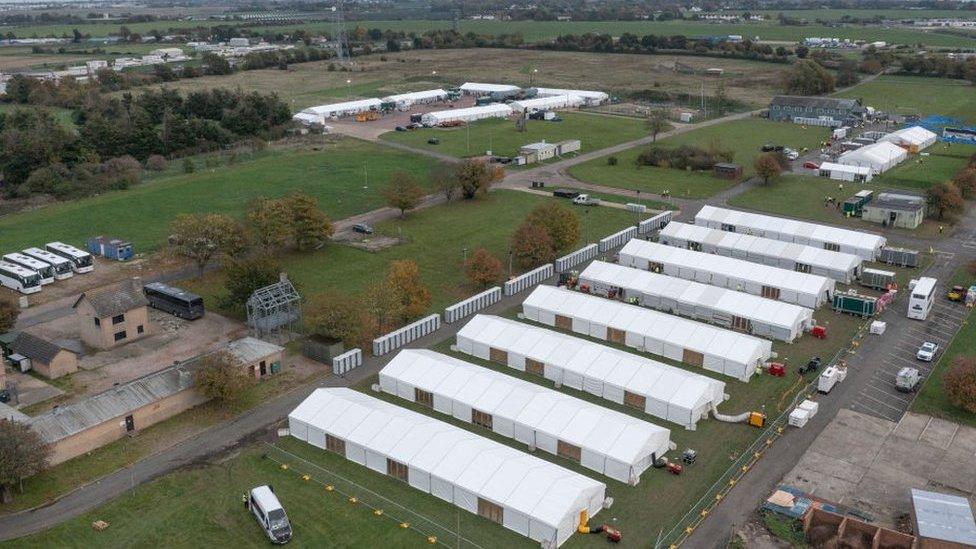
Large numbers of migrants are continuing to cross the English Channel (the stretch of water between England and France) - including almost 1,000 on Saturday - a record amount of people.
They are travelling from France to the UK in small boats and dinghies - it's an extremely dangerous way to travel to the UK and puts lives at risk.
The number of people who have made the journey so far this year is nearing 40,000, compared to 28,461 who arrived in 2021.
The government is now under pressure to tackle the situation quickly as the systems set up to support migrants when they arrive in the UK have been struggling to cope.
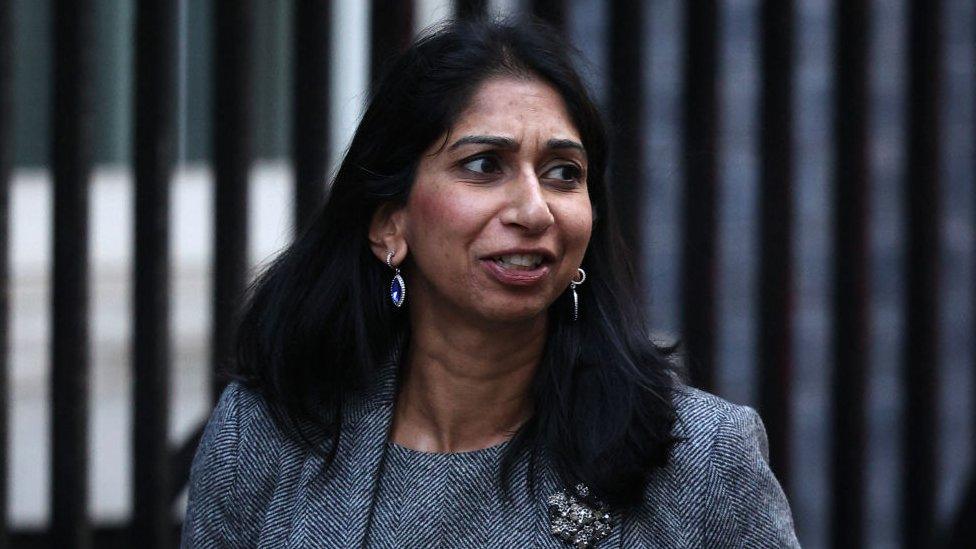
The UK's home secretary - Suella Braverman - is being asked to tackle overcrowding in migrant centres in Kent
Why do people travel across the channel to live in the UK?
There are lots of different reasons people travel across the Channel to live in the UK.
Some are running away from war in the country they were born in, or face harassment because of their race, religion, nationality, political beliefs, or because they are from a particular social group. This makes someone a refugee.
Others are people who move from one place to another in order to start a new life. Often they are in search of better work or education opportunities than their country offers. These people are called migrants.
Many people arriving in the UK will ask for special permission to stay - or asylum. They are known as asylum seekers until they receive a decision on whether or not they can stay and be protected as a refugee.
What is 'seeking asylum'?
An asylum seeker is a person who leaves their home country, enters another country and applies for the right to international protection and to stay in that country.
In the UK, asylum seekers do not have the same rights as refugees or British citizens. For example, asylum seekers aren't allowed to work. They must rely on state support. Housing is provided, but asylum seekers can't choose where it is.
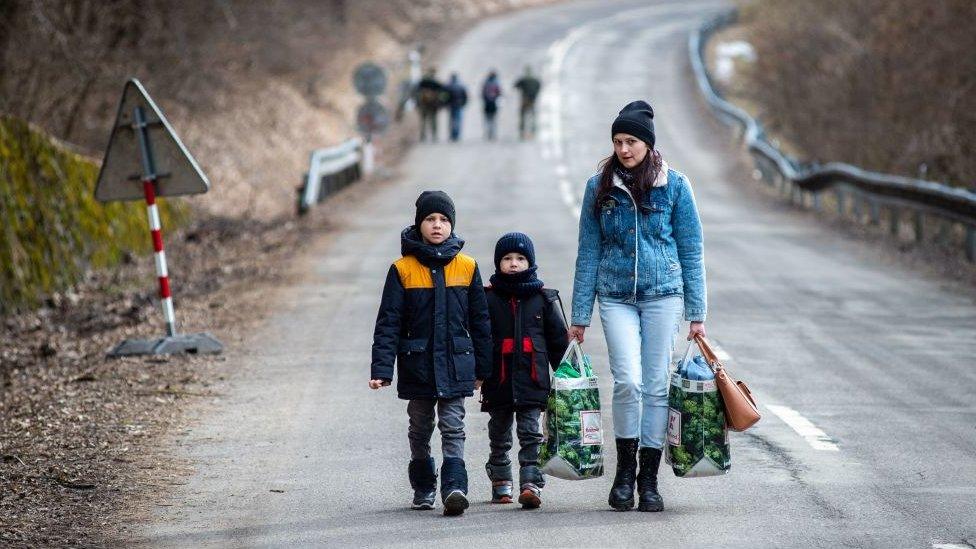
When war happens, some families leave their belongings behind and escape. Lots of countries all over the world let people apply for asylum so they can escape a dangerous place
What is the difference between a migrant and a refugee?
A migrant is someone who comes to the UK in search of a better life, rather than because they are escaping war or persecution.
They could be facing a difficult economic situation in their country, or they might want to move to the UK for better opportunities.
Unlike refugees, there is no official definition of a migrant.
Migrants might not face the same struggles that refugees do, such as war or persecution, but difficulties in their countries might encourage them to leave.
A migrant could be someone looking for work, wanting to move to live with their family, or looking for education in the UK that they might not get in their home country.
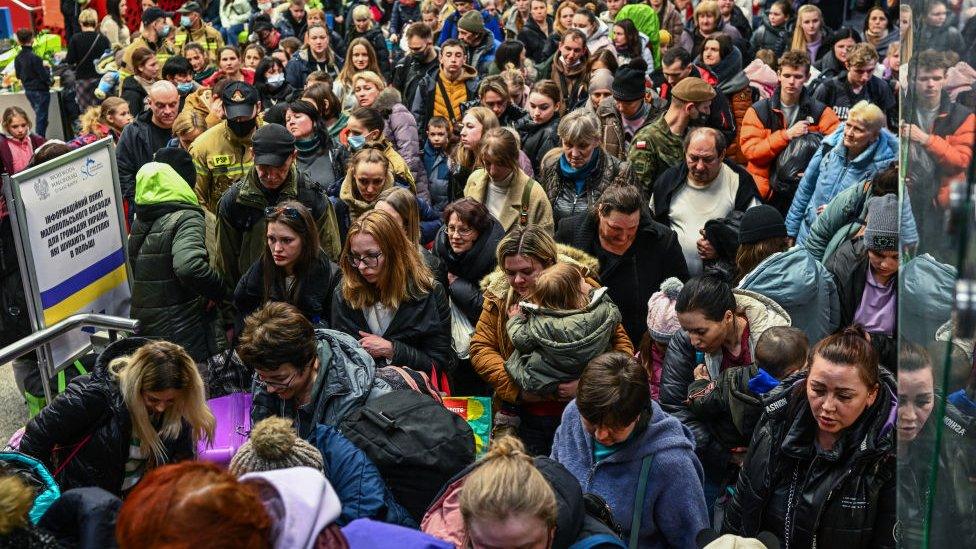
When people fled Ukraine due to the Russian invasion earlier this year, they became refugees
Can the crossing be dangerous?
The English Channel is one of the busiest shipping corridors in the world - which means boats sail up, down and across it delivering goods to England and around Europe.
Boats carrying refugees and migrants face choppy seas, extremely cold water and the danger of crashing into large ships.
The boats are usually very small, with lots of people crammed on, which can make the journey very dangerous. Boats now hold around 44 people on average, compared to last year's average of 28.
Despite these conditions, people who are desperate to get into the UK continue to make the journey.
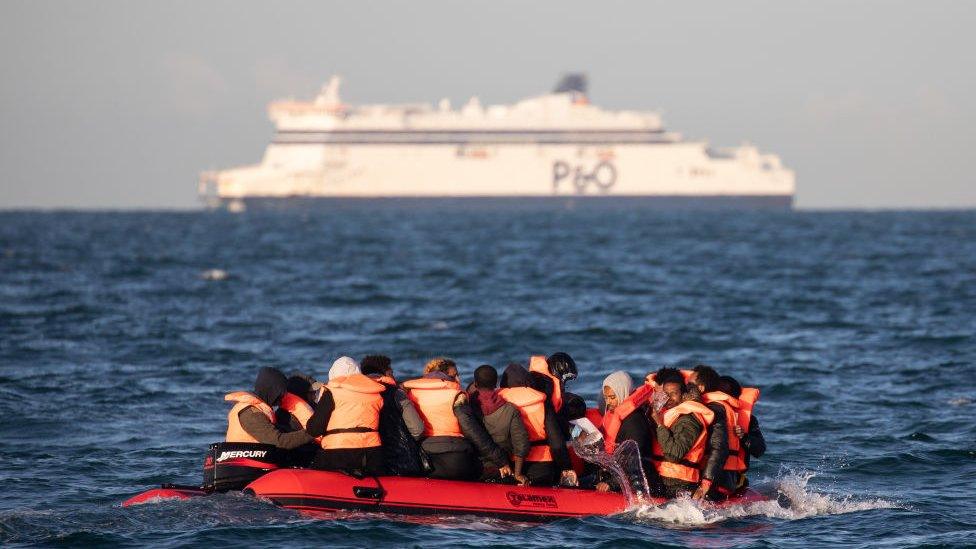
It's a dangerous journey across the Channel - packed onto a tiny boat with cold temperatures
Often these crossings are organised by criminal gangs, which do not always keep their passengers safe, and take advantage of people who might do anything possible to get to the UK.
They often transport people across Europe to get to the Channel and charge lots of money for doing it.
Where do migrants travel from?
Most of the people arriving in small boats across the channel so far this year have been from Albania, Afghanistan and Iran.
12% of these migrants are people under 18.
What is happening at the moment?
Larger than usual numbers of people are coming across the English Channel, and the government is being asked to do more to keep them safe.
The government said on Saturday 29 October around 1,000 people crossed in one day.
Last year around 28,000 people had crossed the channel on small boats by this time in the year - so far this year that number is already at nearly 40,000.
A migrant centre in Kent, where people go when they arrive in the UK, has been described as overcrowded and some people have reported diseases that they worry could spread.
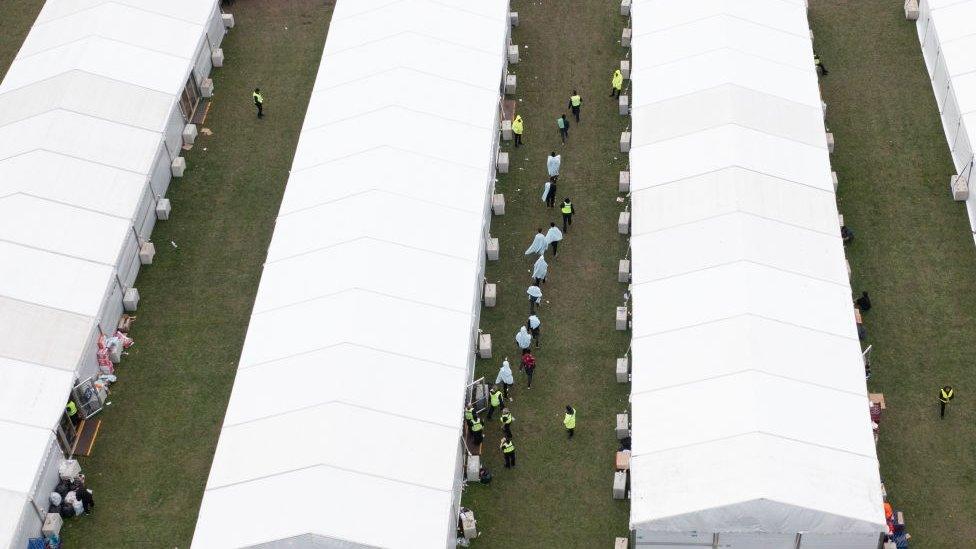
People are not meant to spend long in the migrant centres, but some are being held for longer periods.
Kent is a county on the edge of the English Channel - so it's a location that lots of people head to when trying to enter the UK.
They are only meant to stay in these centres for 24 hours for checks to take place before they are moved to other accommodation.
The Chief Inspector for Borders and Immigration - who works independently to the government - visited a migrant centre in Kent last week and warned that it was "beyond unsafe".
This was before around 1,000 people arrived across the channel at the weekend.
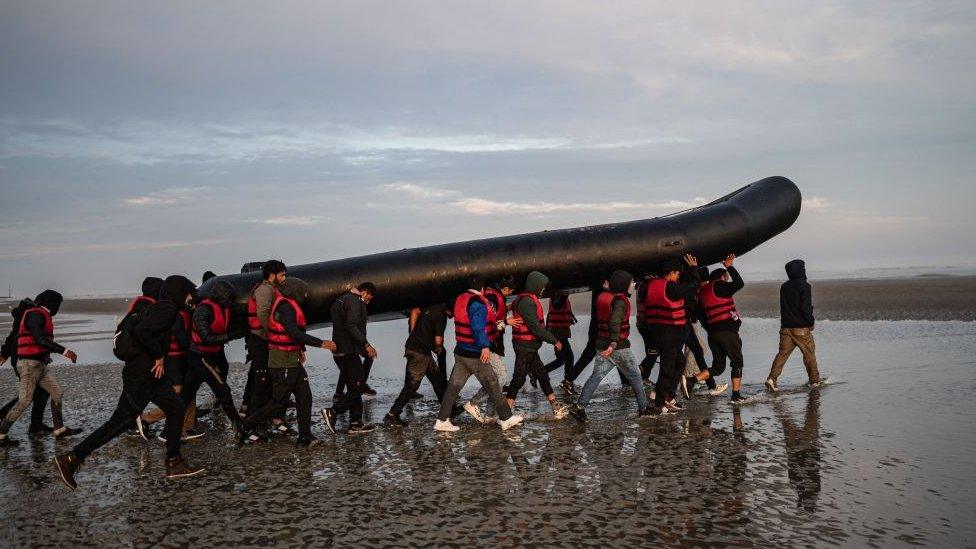
The milder weather conditions we have had recently could be one of the reasons more people are travelling over, as it makes the journey less dangerous
Ongoing issues at the border
Over the weekend there was a fire attack at a centre where migrants are staying in Kent.
People were then moved to a centre called Manston - which was already struggling with overcrowding.
The government had put forward a plan to send some asylum seekers to Rwanda to process their applications, to reduce overcrowding.
It said the plan was made to discourage people from crossing the channel to move to the UK - but migrant numbers have continued to rise since the policy was announced.
No asylum seeker flights to Rwanda have taken place yet - but Suella Braverman - the UK's home secretary - says she wants to go ahead with it.
She has been criticised by charity groups for wanting to send asylum seekers to Rwanda.
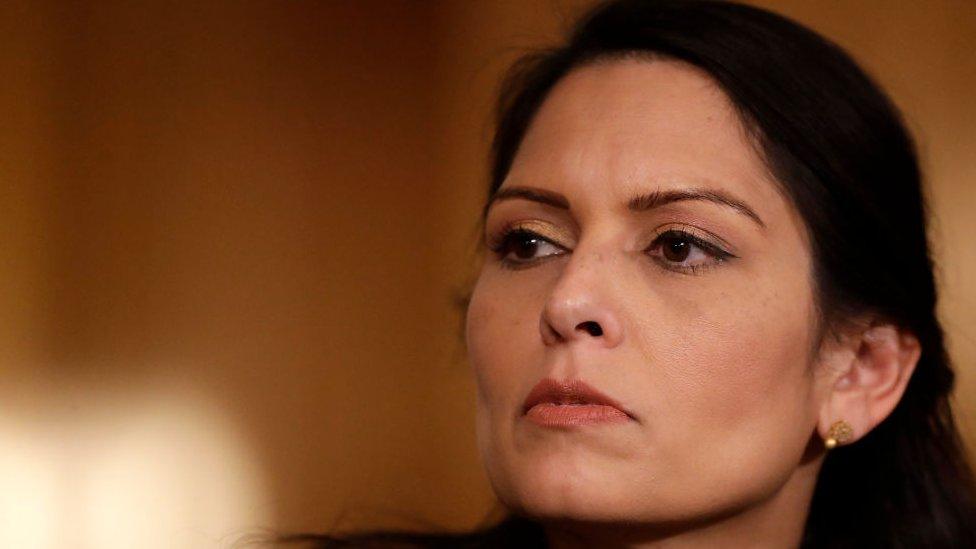
Priti Patel, a previous home secretary, wanted to send people to Rwanda to process their applications
What is the government doing?
Suella Braverman is the government's home secretary - which means she is in charge of immigration.
She decides how people can get into the country and can make decisions around refugees and migrants.
She is already facing difficult questions from MPs after she resigned recently because she sent confidential government information from a private email account.
However, when Rishi Sunak became Prime Minister last week, he reappointed Suella Braverman to her former job.
Suella Braverman is being asked to deal with overcrowding at the migrant centre in Kent by sending asylum seekers to stay in nearby hotels whilst their claims are being processed.
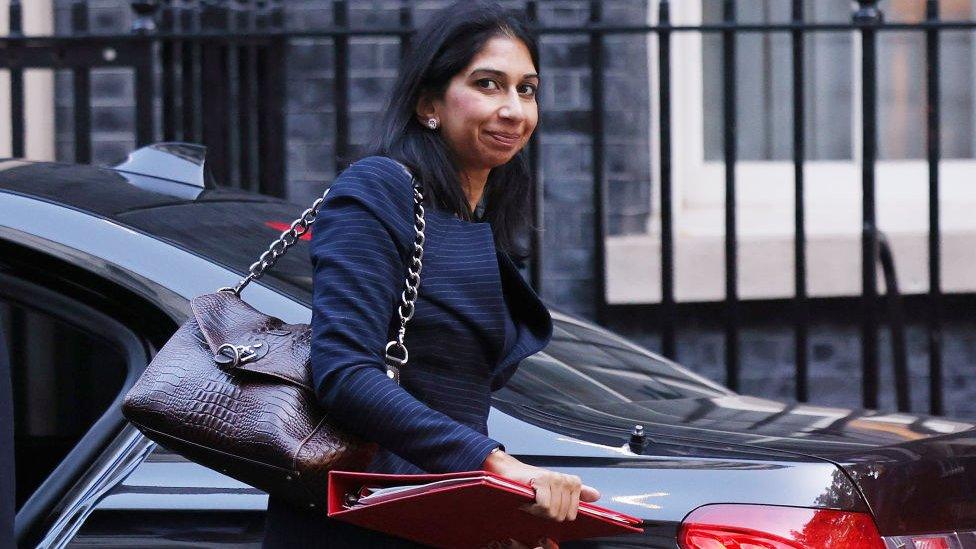
As well as a crisis in Kent, Suella Braverman is also facing difficult questions from MPs about her misuse of important information on her private emails
What are other people saying?
Sir Roger Gale is the MP for North Thanet, which includes the Manston migrant centre.
He says more accommodation such as hotel rooms are needed for migrants to prevent overcrowding.
Other people have asked the government to create new ways for people to seek asylum in the UK. Crossing the English Channel is a very dangerous route, and groups like Save the Children have written to the government asking them to provide safer journeys.
There is also the issue of criminal gangs forcing people into difficult situations when crossing the Channel.
Some people are asking the government to limit how many people are allowed to enter the country to seek asylum.
- Published13 August 2020
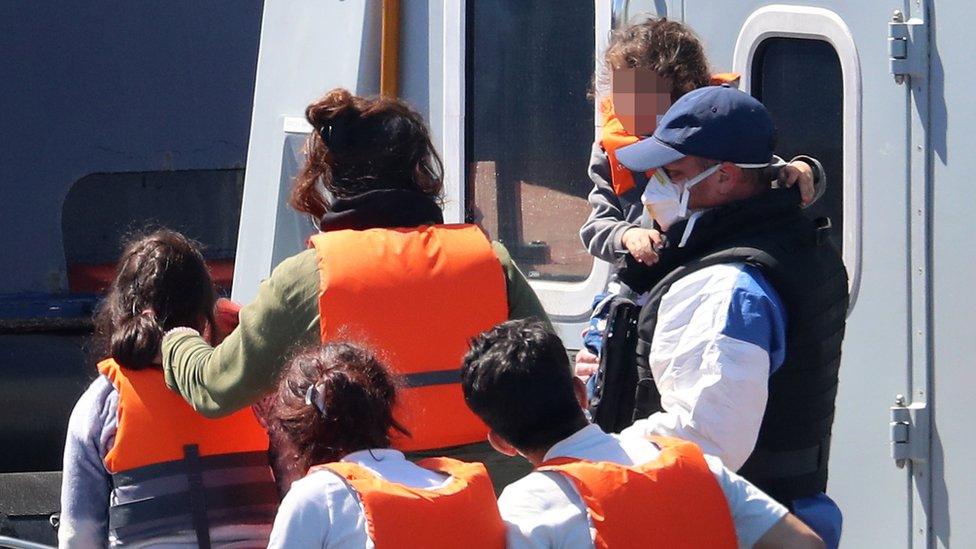
- Published2 January 2019
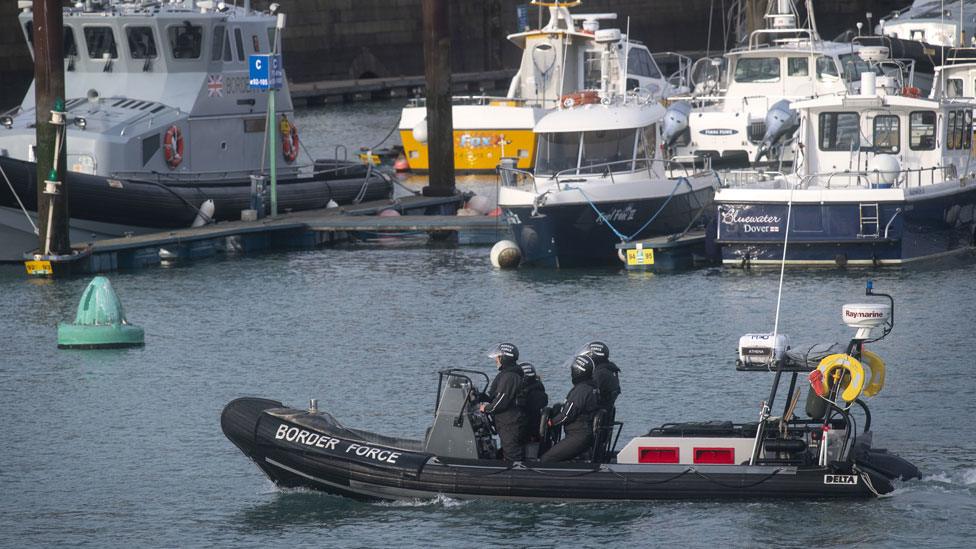
- Published19 June 2020

